Ayurveda is a holistic system of medicine that originated in India. It focuses on the health of the whole person: mind, body, and spirit. No two people are the same, and through Ayurveda, you can find a certain care system catered to a person’s specific needs.
There are three doshas: vata, pitta, and kapha. Each dosha has different hair characteristics. An imbalance in one of the doshas is what is said to cause hair fall, lackluster hair, or various health issues.
In the natural hair community, Ayurvedic hair care practices include using herbs and roots in their powder, whole, or dehydrated form in order to receive outstanding nutrients for the hair. Ayurvedic hair care practices have been linked to hair growth, aiding and soothing scalp issues, hair regrowth, increasing blood circulation, thickening the hair, and so many more.
What we'll discuss in this post
Amla
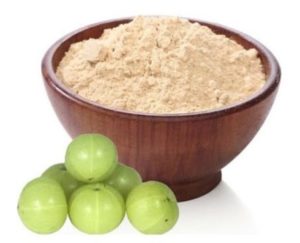
Amla is also known as Indian Gooseberry or Amalaki. It is rich in vitamin C, calcium, iron, and antioxidants. It helps prevent premature greying, conditions the hair, and prevents dandruff and itchy scalp. It provides nourishment that penetrates the scalp and strengthens hair at its root to promote stronger, healthier new growth and helps with hair loss by normalizing blood supply. It also has collagen, which is good for boosting the rate at which hair grows. Used on the skin, it can also reduce the appearance of skin blemishes.
How can I use Amla in my regime?
- Amla powder can be used as a deep conditioner. Add it to yogurt or your ready-made deep conditioner for more conditioning properties. If the final product is grainy, strain it before using in your hair. Washing your hair over and over to get the residue out isn’t fun, trust me.
- Dehydrated or powdered Amla can be soaked in a carrier oil and then used on hair.
- Use dehydrated Amla or the powder to make a tea. The tea can be used to mix with a deep conditioner.
Aritha
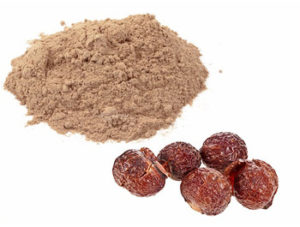
Aritha, also known as Reetha or Soapnut, is used as a natural cleanser. It is rich in vitamins A, D, E, and K and promotes healthy hair growth. These vitamins and saponins add body and shine and make hair feel thicker, silky and smooth. It also helps with detangling! It has natural antifungal and antibacterial properties that may help with dandruff, inflammation, irritated or sensitive skin, itchiness, and dermatitis.
How can I use Aritha in my regime?
Aritha can be used as a powder or the soapnuts in their full form.
- Mix the powder with water, aloe vera juice, herbal tea, or other powders for a no lather shampoo.
- Aritha can also be used in an oil infusion.
Ashwagandha
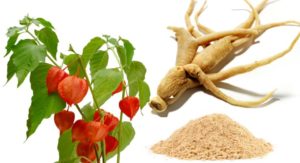
Ashwagandha, also known as Indian Ginseng, is a herb responsible for boosting mental and physical health while boosting your immune system. It is rich in vitamin, antioxidants, and iron. For the hair, it’s equally amazing.
The hormone cortisol, a stress hormone, causes hair loss and slows down hair growth. Ashwagandha, when applied to the scalp controls cortisol levels and aids hair loss. It also boosts antioxidant activity and helps scalp circulation, which results in stronger, thicker hair. It has anti-inflammatory properties that help treat scalp issues such as inflammation, dandruff, irritated or sensitive skin, and itchiness.
Ashwagandha is also known to increase melanin production in the hair, preventing premature greying.
How can I use Ashwagandha in my regime?
Ashwagandha can be found in a powder or dried form.
- Use the leaves, roots, or powder mixed with a carrier oil to make an infused oil for scalp massages or add to shampoo or deep conditioner.
- Soak the leaves, roots, or powder in water to make an herbal tea to mix with deep conditioners or cleansers.
- Mix the powder with an herbal tea, water, or aloe vera for a deep conditioner.
Bhringraj
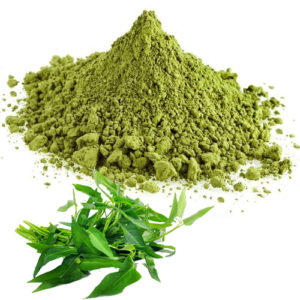
Bhringraj, also known as False Daisy, is the “king of herbs” for hair growth. Think of it as a multivitamin for the scalp.
Bhringraj has been scientifically proven to regrow hair, soothe the scalp, and it has antibacterial and antifungal properties to treat scalp infections and dandruff. Bhringraj also strengthens the root of the hair and encourages the growth of new hair
follicles, increasing the volume of hair. It improves the blood circulation, stops hair fall and encourages new hair growth.
How can Bhringraj be used in my regime?
- The powder can be infused in a carrier oil and other herbs.
- The powder can also be mixed with herbal tea, aloe vera, water, or yogurt for a deep conditioner. Always strain the final product with cheesecloth or pantyhose to reduce grainy residue in the hair.
Brahmi
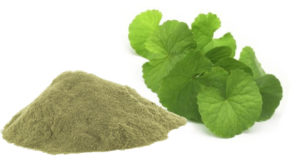
Brahmi is also known as Bacopa Monnieri, and Centella Asiatica, and has been a popular ingredient in skin care products lately.
Brahmi is an outstanding herb that is responsible for strengthening the hair root, nourishing the scalp, and promoting hair growth. It has conditioning properties that help tame frizz and reduce hair shedding, increasing thickness.
Brahmi is also known for reducing stress and helping one get to sleep.
How can I use Brahmi in my regime?
Brahmi can be used in the leaf or powder form.
- Soak the leaves in water, herbal tea, or aloe vera to make a hair rinse or Brahmi tea.
- Mix the powder with an herbal tea, yogurt, water, or other liquid to make a deep conditioner.
- Soak the powder or leaves in a carrier oil to make Brahmi oil.
Cassia
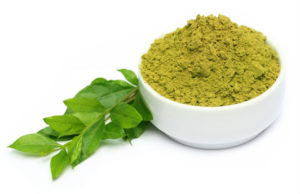
Cassia, also known as Neutral Henna, is an excellent alternative to henna. It is molecularly similar to keratin, which makes up the outer layer of hair.
Like Henna, Cassia settles into the surface of the cuticle and fills any holes in found in the cuticles. This gives each hair strand protection against harmful substances in the atmosphere and gives more strength to the hair.
Cassia also has antibacterial, astringent, and antiseptic properties that make it excellent for scalp conditions ranging from inflammation, dandruff, irritated or sensitive skin, itchiness, and dermatitis. Cassia is a great conditioner as it smoothes the hair cuticle and proving shine and extra, temporary volume. Long term use of Cassia is needed to maintain added volume because the deposits aren’t permanently placed in the cuticles.
How can I use Cassia in my regime?
Cassia can be used in the powder or leaf form.
- Mix the powder with herbal tea, water, or aloe vera juice for a strengthening deep conditioner.
- Add the powder to water, aloe vera juice or herbal tea, strain, and use as a tea for a final rinse or spray midweek.
- The powder or dried leaves can be infused in a carrier oil.
Fenugreek
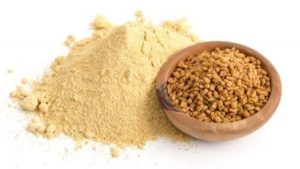
Fenugreek, also known as methi, is a natural conditioner. It stimulates blood flow to the root of the hair and provides slip for detangling due to mucilage. It is also used to preserve the hair’s natural pigment.
Fenugreek has nicotinic acid, also known as Vitamin B3, which encourages growth. It also has lecithin, which energizes the hair follicle. It has zinc to help provide protein to the hair and iron that assists with hair fall.
Fenugreek also possesses anti-bacterial and anti-microbial properties to aid the scalp with inflammation, dandruff, irritated or sensitive skin, and itchiness.
How can Fenugreek be used in my regime?
Fenugreek can be used in the powder or seed form.
- Mix the powder with herbal tea, water, or yogurt, and other herbs for a deep conditioner. Always strain this mixture.
- Soak the seeds in water or herbal tea overnight. Use the liquid as a final rinse, add other herbs to the liquid to make a herbal tea, or use the liquid to mix your deep conditioner for easily detangling.
Henna
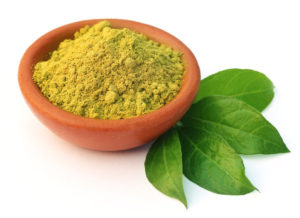
Henna is probably one of the most famous Ayurvedic herbs in the world. It’s used for body art, health problems, and of course hair.
Henna is a natural hair conditioner, hair strengthener, and hair volumizer. With constant use, Henna can be deposited and attached to the hair cuticle in order to increase the thickness of strands and provide strength. This is due to Henna coating the hair and adding weight to it.
It has antibacterial, antimicrobial, and astringent properties that help with dandruff, inflammation, irritated or sensitive skin, and itchiness. It also removes excess oils from the scalp, preventing clogged pores. Be aware that Henna does have dye properties, so when working with it use gloves and when mixing allow the mixture to sit overnight before using.
Also, know that some people have documented that their hair texture changed after using Henna, while others do not notice a difference. Lastly, Henna can be a lot to manage for some people. Use it as a gloss by mixing Henna with a moisturizing conditioner first to see how your hair responds.
How can I use Henna in my regime?
- Henna can be mixed with water, herbal tea, yogurt, apple cider vinegar (ACV), or any liquid. Let the mixture sit overnight so the Henna can release its dye properties; that’s where all the nutrients are. Use the mixture on your hair and then follow up with a moisturizing conditioner to maintain the moisture/protein balance in your hair.
- Henna can be added to water, aloe vera juice, or another liquid to be used as herbal tea. If using the tea on dry hair, follow up with a moisturizing leave in to balance the strength from the Henna.
Hibiscus
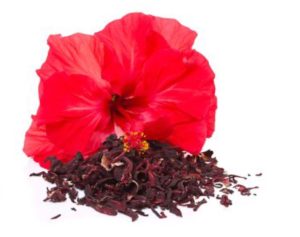
Hibiscus, also known as Gudhal, is a vibrant flower that has outstanding benefits for hair, skin, and the body. Hibiscus is packed full of amino acids providing the hair with mild proteins. It also has Vitamin A and Vitamin C, both aiding in hair growth and regrowth of bald spots.
Hibiscus also has mucilage, which aids in detangling the hair. It is an excellent conditioner for dry, frizzy hair. Lastly, Hibiscus helps relieve itchiness, dry scalp and dandruff.
How can I use Hibiscus in my regime?
- Hibiscus flowers, petals, or powder can be used in multiple ways.
- Infuse the flowers, petals, or powder with a carrier oil for scalp massages.
- Soak the flowers, petals, or powder in water, aloe vera, or a different liquid for an herbal tea. The tea may have a red hue to it and could stain, so protect yourself and your clothes when using it in a tea.
- Mix the powders with other powders, liquid, yogurt, or herbal tea for an extremely moisturizing deep conditioner.
- Use the herb mixed with water or herbal tea for a natural shampoo.
- Soak the flowers, petals, or powder in water and use that water as a final rinse.
Neem
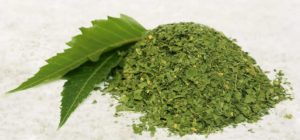
Neem leaves or powder are probably the most discussed when it comes to scalp issues. It has antibacterial and antifungal properties, as well as nimbidin, an anti-inflammatory component. These all work together to curb dry scalp, itchiness, dandruff, and inflammation.
Neem leaves and powder have azadirachtin, a powerful insecticidal ingredient that blocks reproduction of lice, eventually killing them! Neem also has antioxidants that aid hair growth. Fatty acids in Neem help with nourishing the scalp and hair, and provide moisturizing properties to tame frizz and dryness.
How can I use Neem in my regime?
Neem can be used in the leaf or powder form.
- Soak the leaves or powder in water, herbal tea, or aloe vera juice to have a potent scalp rinse or scalp spray.
- Mix the powder with a liquid, other powders, or by itself for a moisturizing and soothing deep conditioner.
- Add the leaves or powder to a carrier oil and let it infuse for weeks. Use the oil on your scalp, for sealing, hot oil treatments, or adding to a deep conditioner mix for an Ayurvedic boost.
- Neem powder can also be used to treat stubborn acne and eczema.
Nettle
Nettle, also known as Stinging Nettle, is rich in vitamins A, C, and K. It has essential amino acids, calcium, and iron. Nettle is used to stimulate the scalp and improve circulation. Nettle is great for reducing hair shedding, reducing dandruff, inflammation, irritated or sensitive skin, and itchiness.
Because of the numerous vitamins and minerals, Nettle is a great hair conditioner promote fuller, softer, and more radiant hair. It is also great for strengthening the hair shaft.
How can I use Nettle in my regime?
Nettle can be used in the dried leaf or powder form.
- Add the leaves to a carrier oil for an oil infusion. The oil can be used for scalp massages or sealing the hair.
- Boil water and create a tea with Nettle leaves or powder. Let the mixture sit overnight and then strain. This tea can be used as a pre-poo, scalp spritz, or to mix your own DIY deep conditioners.
Shikakai
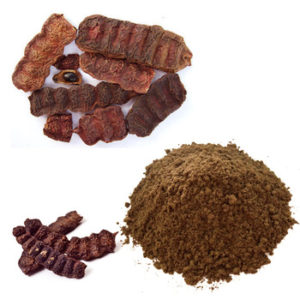
Shikakai, also known as “fruit for the hair,” is rich in antioxidants and vitamins A, C, K, and D. It is a gentle cleanser for the hair, and it’s antiseptic and antifungal properties make it excellent for soothing the scalp and preventing dandruff. Vitamin C and other antioxidants aid in hair growth and protecting the hair from free radicals. Shikakai is a natural conditioner that strengthens the hair root and gives the hair shine.
How can I use Shikakai in my regime?
Shikakai can be used in the powder or nut form.
- Mix the powder with water, herbal tea, aloe vera, or another liquid for a natural shampoo.
- Add the powder to water, herbal tea, or yogurt, for a deep conditioner.
- Add the powder to a carrier oil for an oil infusion.
Tulsi
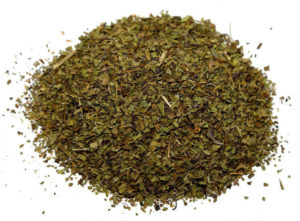
Tulsi, also known as Holy Basil, is widely known all around India. It has vitamin A, C, K, and E. It has outstanding medical and hair benefits. There is research to support that Tulsi can be used to reduce stress, regulate blood sugar levels, protect the liver, aid weight loss, and boost immunity.
For the hair, Tulsi has anti-bacterial and anti-fungal properties to treat scalp irritations, itchiness, flaking, and dandruff. By improving blood circulation to the scalp, it reduces shedding and promotes hair growth.
Tulsi also reduces frizz and gives the hair shine.
How can I use Tulsi in my regime?
Tulsi can be used in the leaf or powder form.
- Use leaves or powder for an oil infusion with a carrier oil for scalp massages or hot oil treatments.
- The leaves or powder can be infused with water, herbal tea, or aloe vera juice in order to make an herbal tea for mixing deep conditioners or spritzing on the scalp for massages.
Ayurveda for Natural Hair Cheatsheet
Have a specific problem that you want to target? Here’s a quick summary of herbs that can be used for various problems:
| Use | Herbs |
|---|---|
| Cleansing | Aritha, Hibiscus, Neem, Nettle, Shikakai, Tulsi |
| Conditioning | Amla, Cassia, Fenugreek, Hibiscus |
| Strengthening | Bhringraj, Brahmi, Cassia, and Henna |
| Scalp Issues | Ashwagandha, Bhringraj, Neem, Nettle, Tulsi |
About the Author
 | Deidre has been natural since 2012 and has Type 4 hair. She loves natural hair and researching ways to care for it. Once she started using herbs in her hair care regime, she noticed a drastic improvement. Deidre is a firm believer that with herbs and natural ingredients, our hair will flourish. For more from Deidre, visit her on Instagram. |

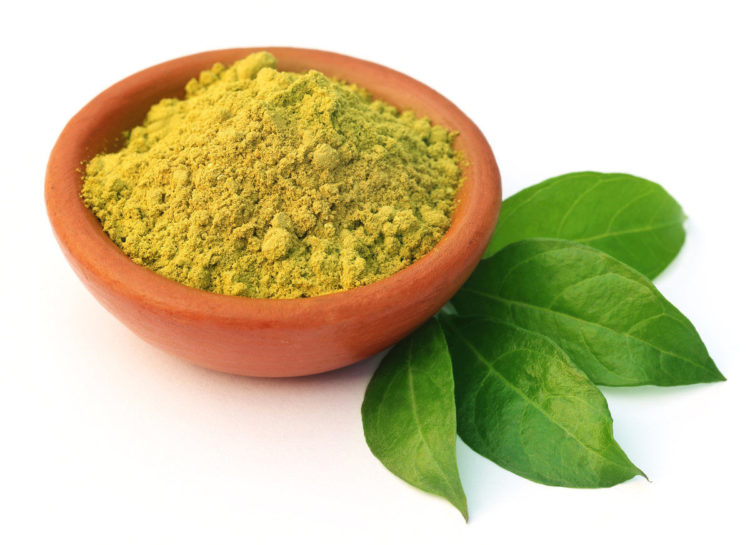
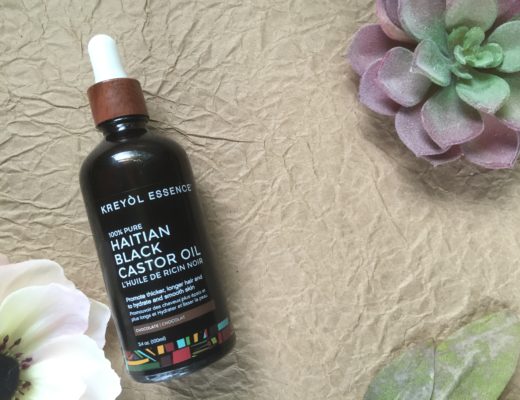
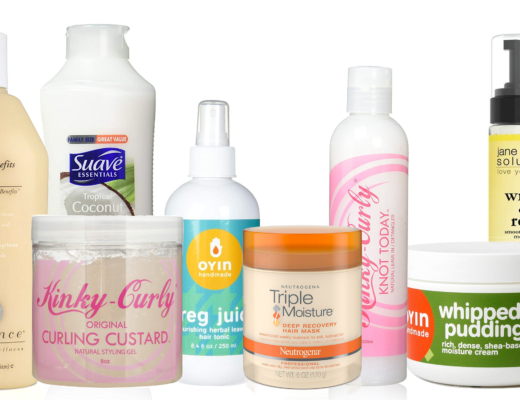
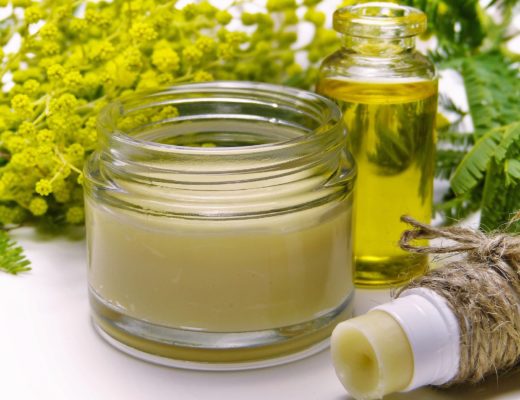

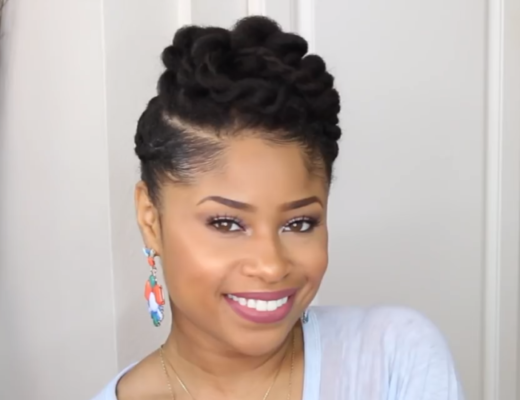
[…] influencer, Curly Proverbz, who promotes the use of Ayurvedic herbs used with MSM. You can read here why Ayurvedic herbs are so good for hair health and how great it is for your hair regimen, but one […]